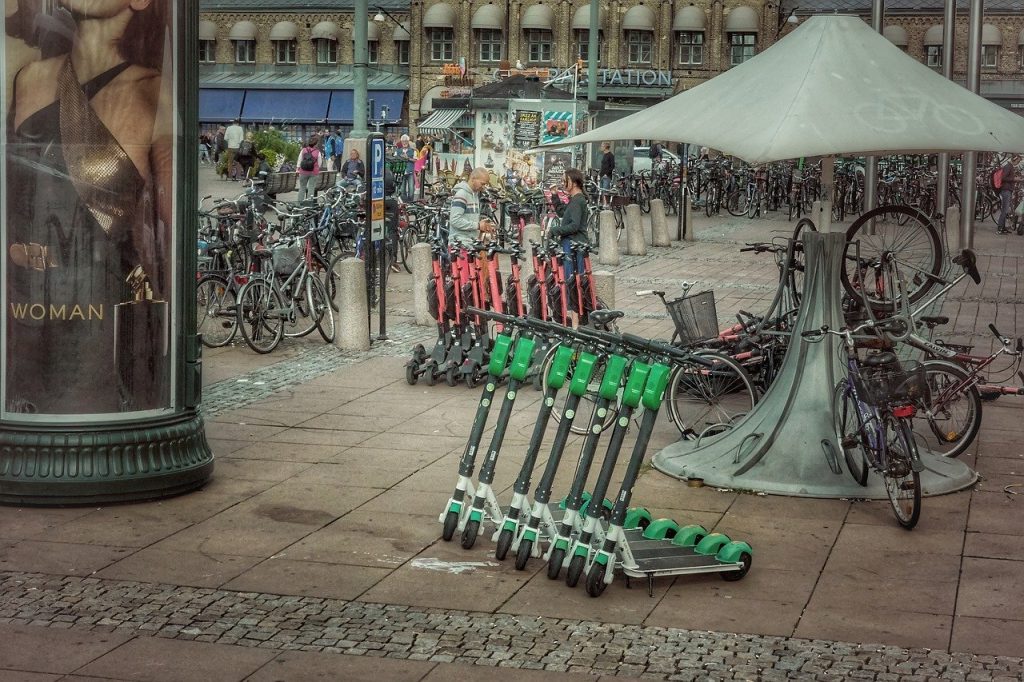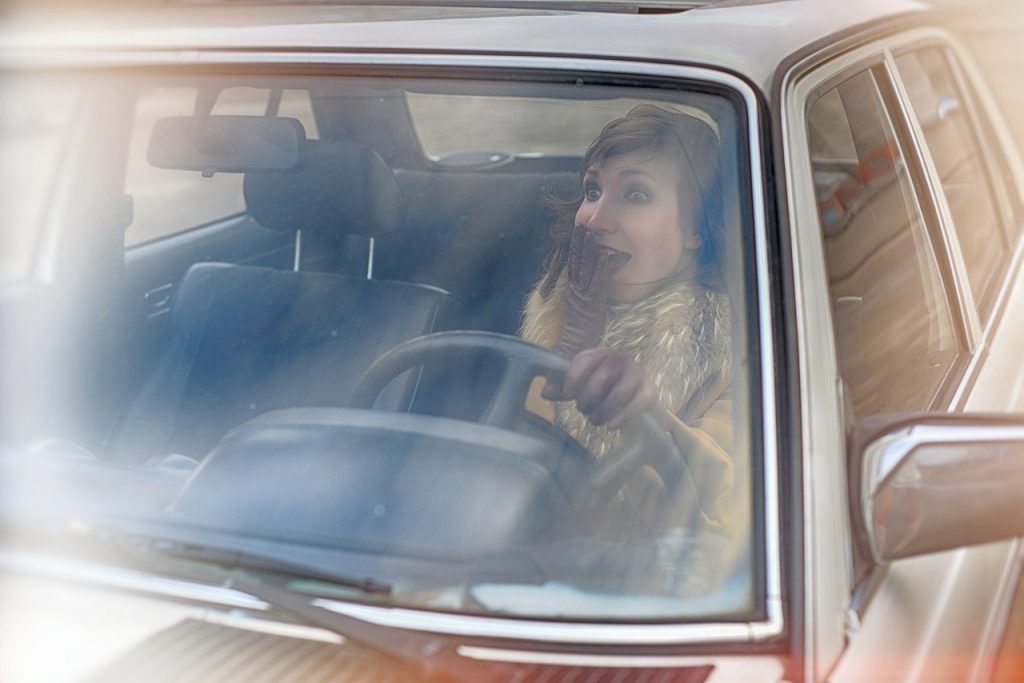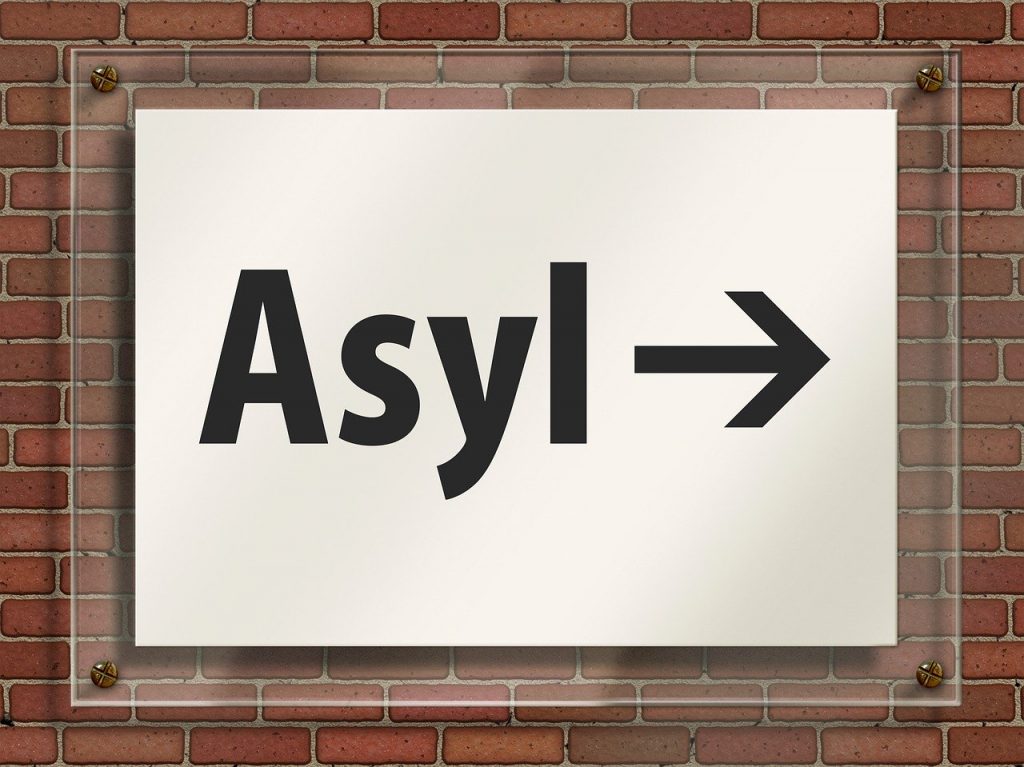German Word of the Year 2019 Runners Up Posted by Constanze on Jan 1, 2020 in Culture, Language
Guten Tag! Each year, the Gesellschaft für deutsche Sprache (GfdS) – The German Language Association – picks a word as their Wort des Jahres – ‘Word of the Year’. This is often a word related to a prominent topic in the country during the year, and is usually interesting from a linguistic perspective, too. The Word of the Year has nothing to do with how often the word has been used, but is more about the word’s significance. What’s great about learning the German Word of the Year is that it gives us an insight into Germany’s current events, politics and culture, whilst teaching us some quirks of the language, too.
Last time, I wrote about the winner of the Wort des Jahres. You can read about that word here. In this post, we will briefly look at the runners-up.
The runners-up for the Wort des Jahres 2019 are as follows:
Rollerchaos
Literally ‘scooter chaos’ (der Roller is the German word for scooter). In summer 2019, a law was passed in Germany that allows people to ride electric scooters on bike paths at speeds of up to 20kph (12mph). The ‘Chaos’ (the word is the same in German and English) comes from the increase in accidents involving e-scooters; the way they are often left parked in random places; and even incidents involving people driving them on motorways!
Fridays for Future
This Anglicism refers to the youth climate strikes done globally, originally founded by Greta Thunberg.
Schaulästige
This word is a combination of die Schaulustige (onlookers) and lästig (annoying). It describes people who slow their cars down to watch at the scene of an accident or crime, therefore creating even more traffic, and/or stick their heads out of their cars to see what’s going on further down. They are usually called Schaulustige in German but the play on words is that the last part of the word, lustig, means ‘funny’, while the similar word lästig means ‘annoying’. And it is truly more annoying than it is lustig! Apparently the word Schaulästige was originally said as a slip of the tongue, but it stuck.
Donut-Effekt
Literally ‘doughnut effect’, this refers to the phenomenon where inner-city areas become too expensive, so people move their businesses and homes to the outskirts where it’s more affordable, leaving a hollow in the city centre.
brexitmüde
Literally ‘Brexit-tired’, this does not need an explanation. We are all Brexit-tired.
gegengoogeln
This strange verb roughly translates to ‘check with Google’. Gegengoogeln means to check facts with Google before accepting anything as truth, as so many people do nowadays.
Bienensterben
Literally ‘bee deaths’ but also known as ‘colony collapse disorder’, this word is topical because many petitioned and demonstrated in early 2019 to save the bees in Germany. You can read more about it in this post.
Oligarchennichte
Literally ‘Oligarchen niece’, this refers to what’s now called the Austrian Ibiza-Affäre (‘Ibiza affair’), a scandal which led to the collapse of the Austrian governing coalition and led to an early election.
Geordnete-Rückkehr-Gesetz
Literally ‘orderly return law’, this controversial bill gained attention in Germany this year because it proposed tougher laws on deportations for asylum seekers.
*
I hope you have enjoyed this little insight into Germany’s ‘hot topics’ in 2019!

Build vocabulary, practice pronunciation, and more with Transparent Language Online. Available anytime, anywhere, on any device.












